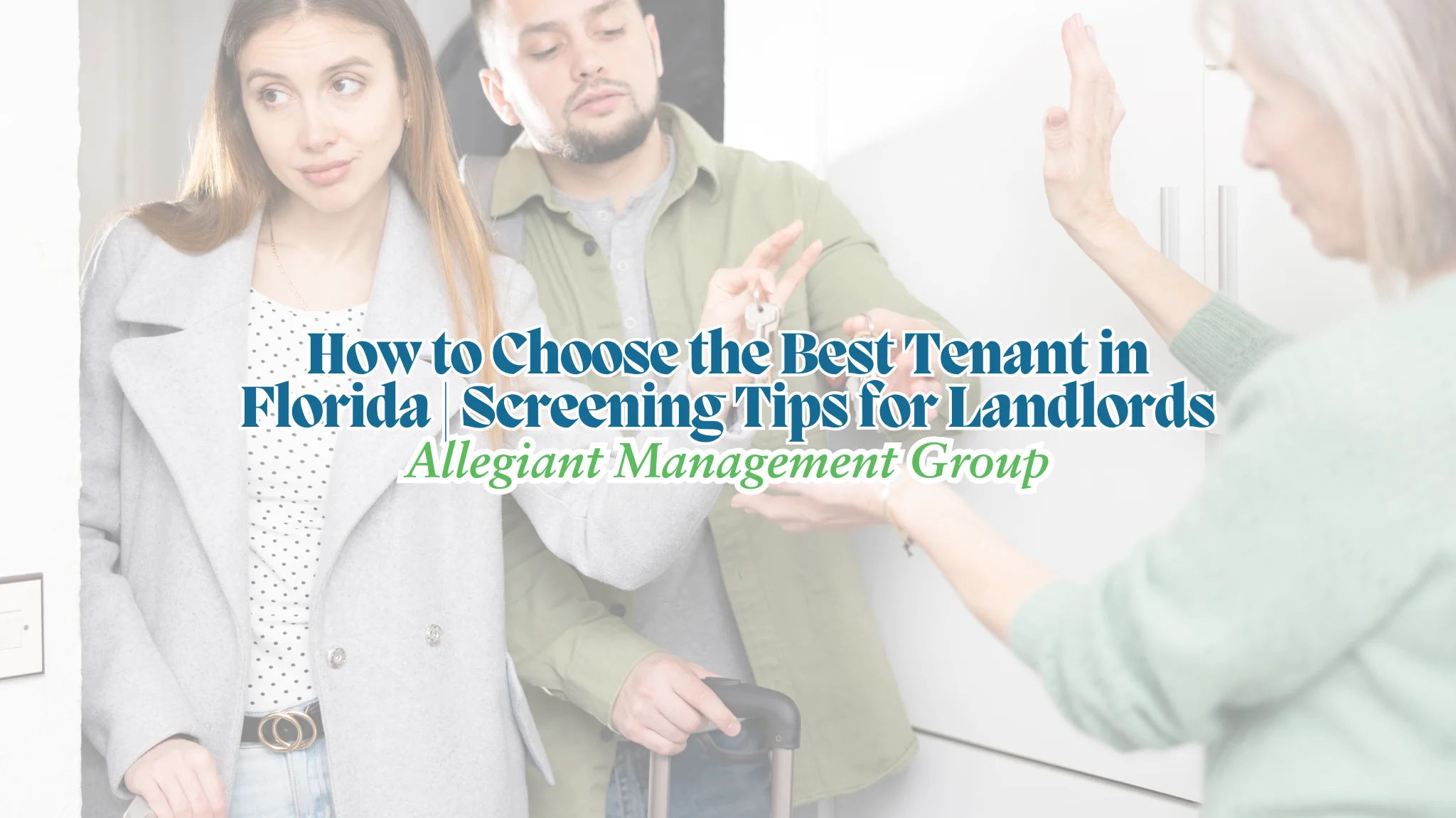Tenant screening is the most important decision a landlord will make. A reliable resident means steady income, fewer headaches, and long-term asset protection. A bad choice can lead to costly evictions, damages, and stress. In this guide, we’ll walk through how Florida landlords can find the best tenants using a structured, compliant screening process. Choosing the right tenant in Florida requires a structured screening process.

Why Tenant Screening Matters in Florida
Florida’s rental market is competitive. With so many applicants, landlords must carefully evaluate who they approve. The right tenant reduces turnover, avoids late payments, and treats the property with respect. A poor choice can result in unpaid rent, expensive legal fees, and property damage.
Screening isn’t about finding a “perfect” tenant—it’s about finding a qualified one who meets your published standards consistently.
Florida Laws on Tenant Screening
While Florida law allows landlords to set reasonable screening standards, they must comply with federal, state, and local fair housing rules. Key points include:
- Fair Housing Act: No discrimination based on race, religion, color, sex, disability, familial status, or national origin.
- Florida Statutes: Landlords may request application fees and deposits but must handle them transparently.
- Adverse Action: If denying based on credit/background, landlords must provide applicants with notice per the Fair Credit Reporting Act (FCRA).
Step-by-Step Tenant Screening Process
1. Pre-Screening Questions
Ask applicants about move-in dates, pets, income, and reason for moving before sending the application. This filters out mismatched renters early.
2. Rental Application
Require a detailed written application with ID, income sources, employment info, rental history, and references. Charge a reasonable application fee.
3. Credit Check
Review credit reports for late payments, high debt ratios, and prior collections. While not the only factor, credit gives insight into financial reliability.
4. Background Check
Use a nationwide background check to review eviction history, criminal records, and prior lawsuits. Ensure compliance with fair housing when evaluating results.
5. Income & Employment Verification
Request pay stubs, W-2s, or employer letters. Standard practice in Florida is requiring tenants to earn 3x monthly rent. Self-employed tenants may need tax returns or bank statements.
6. Rental History
Contact prior landlords to confirm payment timeliness, care of the property, and lease compliance. This is one of the most reliable indicators of future behavior.
Common Red Flags to Watch
- Incomplete or inconsistent application information
- Unverifiable income or employment
- Frequent late payments on credit history
- Eviction history within the past 7 years
- Negative landlord references
Red flags don’t automatically mean denial—but they require closer evaluation. Always apply standards consistently across applicants.
Best Practices for Florida Landlords
- Publish written criteria: Make requirements clear before applications.
- Stay consistent: Apply the same standards to all applicants.
- Document everything: Keep copies of applications, reports, and communications.
- Use written leases: Avoid handshake deals; Florida law requires written agreements for clarity.
- Respect privacy: Handle sensitive applicant data securely.
Tools & Services to Use
Florida landlords have access to multiple online tools for screening:
- TransUnion SmartMove
- AppFolio Screening (for property managers)
- Buildium Screening Tools
- Local REALTOR® associations offering background check services
Why Work With a Property Manager
Screening tenants can be overwhelming. A professional property manager in Orlando or across Florida brings:
- Standardized, compliant screening systems
- Access to professional background and credit check platforms
- Experience evaluating rental history and red flags
- Time savings and peace of mind for landlords
At Allegiant Management Group, our Resident Selection Criteria align with Florida law and protect our owners. We handle the process end-to-end so you can focus on growing your portfolio.
Frequently Asked Questions
- What tenant screening steps are required in Florida?
- Landlords may use credit, background, income, and rental history checks, but must apply criteria consistently and follow fair housing laws.
- Can landlords deny tenants for bad credit?
- Yes, if applied uniformly and documented. Always provide an adverse action notice when required.
- How much income should a tenant make?
- Typically 3x the monthly rent, but landlords should clearly publish their standard.
- Do landlords need to follow Fair Housing laws?
- Yes, federal and Florida fair housing laws apply statewide, including county and city variations.
- Should I hire a property manager for screening?
- Yes, professionals ensure compliance, reduce risks, and use systems that improve tenant placement success.



